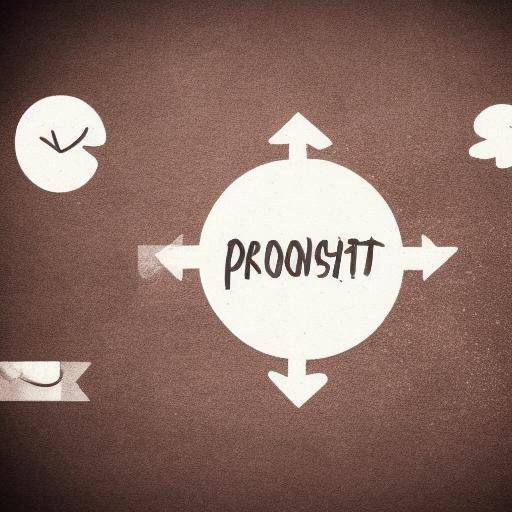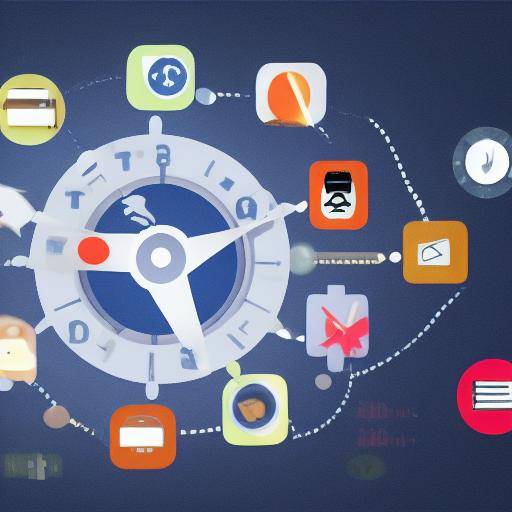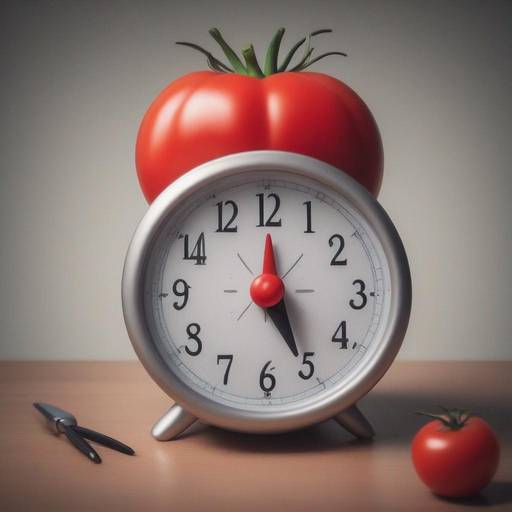
Time management is one of the most relevant skills in personal and professional life. With the constant demand for tasks and responsibilities, time becomes a precious resource that requires effective planning. In this sense, daily self-evaluation plays a crucial role in the optimization and organization of time. In this article, we will explore the importance of daily self-assessment, how it influences time management and productivity, as well as offer practical advice to effectively implement this tool.
Introduction
Daily self-evaluation is a personal process that involves reflecting on the activities carried out, the achievements made and the challenges faced throughout the day. This exercise not only allows to identify areas of improvement, but also provides an opportunity to recognize the aspects in which it has been successful. By integrating daily self-assessment into routine, self-awareness, self-discipline is encouraged and informed decision-making on time management is facilitated.
History and Background
The daily self-evaluation has its roots in ancient philosophical and spiritual practices that promoted reflection and self-knowledge as pathways to personal growth. Throughout history, prominent figures such as Socrates and Confucius advocated the importance of self-reflection as a means of achieving wisdom and self-realization.
With the advent of modern psychology, self-assessment became a central component of cognitive and behavioral therapies. Since then, its implementation has spread to areas as diverse as business administration, leadership, education and time management.
Deep analysis
Daily self-evaluation presents multiple benefits in time management and productivity. By raising awareness of the strengths and weaknesses themselves, you can design a customized time management strategy, focused on enhancing the positive aspects and addressing the areas of improvement. Also, when identifying behavior patterns, you can implement settings that maximize efficiency and minimize waste of time.
Despite its benefits, daily self-evaluation also poses challenges. Excessive self-criticism or lack of objectivity can hinder the effectiveness of this process, resulting in a negative impact on self-confidence and decision-making. It is crucial to find a balance between constructive self-criticism and the fair recognition of achievements.
Comprehensive review
Practical applications of daily self-assessment in time management are diverse. Establish realistic goals, prioritize tasks, delegate responsibilities and learn to say "no" are just some of the strategies that arise from a reflective and honest analysis. At the same time, the daily self-assessment can serve as a mechanism to evaluate the effectiveness of different time management techniques, which allows the adjustment and optimization of the personal approach.
To present multiple perspectives and opinions about daily self-assessment enriches the debate about its relevance in the organization of time. Different experts in productivity, psychology and leadership provide unique visions that broaden understanding of this practice. The diversity of approaches also reflects the adaptability of daily self-assessment to different contexts and individual needs.
Comparative analysis
In understanding the interrelationship between daily self-assessment, time management and productivity, similarities, differences and possible synergies between these concepts can be identified. While the daily self-assessment focuses on personal reflection, time management encompasses the planning and organization of activities. Productivity, for its part, refers to efficiency and effectiveness in carrying out specific tasks. That said, the combination of these three areas can lead to greater effectiveness in the implementation of activities, better use of time, and ultimately to increased productivity.
Practical Tips and Accessible Advice
Implementing daily self-assessment effectively requires the development of specific skills and the adoption of healthy habits. Some practical tips include:
- Establish a fixed moment to perform the daily self-assessment, preferably at the end of the working day.
- Use tools such as schedules, applications or notebooks to record self-assessment findings.
- Prioritize self-compassion and recognition of achievements, without neglecting the identification of areas of improvement.
- Take advantage of external feedback, whether from colleagues, mentors or supervisors, to enrich the personal perspective.
- Experience with different time management strategies and assess their effectiveness through daily self-assessment.
Industry Perspectives and Expert Reviews
The insights of experts in productivity, time management and psychology provide a deep insight into the application of daily self-assessment in professional contexts. The importance of authenticity, responsibility-taking and the development of a continuous improvement mentality is emphasized as fundamental elements for maximizing this process.
Also, emerging trends related to daily self-assessment suggest greater integration of technology, the promotion of the culture of constructive feedback in the working environments and the use of objective metrics to measure individual progress.
Case Studies and Practical Applications
Case studies provide concrete examples of how daily self-assessment has positively impacted time and productivity management. From independent professionals to work teams in multinational companies, real cases illustrate how daily self-assessment can be a powerful tool for personal development and the achievement of professional goals.
Future Trends and Predictions
As society moves towards more flexible and results-oriented work environments, there is an increase in the relevance of daily self-evaluation as a practice that promotes individual responsibility and professional growth. The boom in collaborative workspaces and the adoption of agile methodologies also support the need for constant self-evaluation as a way of adapting to a changing environment.
Conclusion
Daily self-evaluation is presented as a valuable tool for time management and productivity improvement, not only at the individual level, but also in working environments. By cultivating the ability to consciously reflect on daily actions, a path to self-improvement and achievement of goals is established. Through daily self-assessment, informed decision-making is promoted, effective self-management of time is encouraged and a proactive approach to continuous improvement is encouraged.
Frequently asked questions
What is the difference between daily self-evaluation and self-criticism?
The daily self-assessment focuses on an objective and balanced evaluation of actions, achievements and areas of improvement, while self-criticism tends to include a more negative and self-aspirating component.
What is the best time to perform the daily self-assessment?
The ideal time is usually at the end of the day, when you can reflect on the activities performed and plan adjustments for the next day.
What tools can help in the daily self-assessment process?
Agendas, time management applications, reflection notebooks and external feedback tools can be useful for realizing and recording daily self-assessment.
Is daily self-evaluation useful in working environments?
Yes, daily self-assessment can significantly contribute to professional development and improved performance in working environments, allowing individuals to effectively identify and address areas of improvement.
What to do if the daily self-assessment reveals recurring problems in time management?
In this case, it is advisable to seek guidance and support, either through collaboration with colleagues, the search for training resources or the assistance of a mentor.
Is daily self-assessment equal to all?
While daily self-assessment is a valuable tool, its effectiveness can vary according to individual characteristics. Some people may find it more useful than others, and it is important to adjust their application to the needs and preferences of each.
Conclusion
Daily self-evaluation in time management is not only a powerful tool for personal improvement, but also has a significant impact on productivity and professional performance. In fostering conscious reflection, informed decision-making and the development of customized strategies, daily self-assessment becomes an indispensable ally in the effective use of time and achieving goals. By adopting this approach, individuals can cultivate greater self-consciousness, boost their professional development and contribute significantly to success in their daily activities.






















































